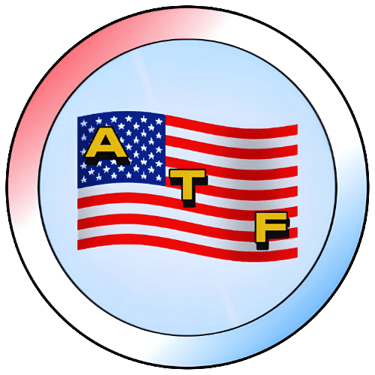Travel Scams 2025: Avoid These Frauds & Stay Safe
TRAVEL NEWSSAFETY & SCAMS
Charles (Chuck) Sieber
2/15/2025

Navigating the World of Travel Fraud in 2025
The thrill of travel! But in 2025, excitement is tempered by the reality of evolving travel scams. As technology advances, so do the methods of fraudsters targeting unsuspecting travelers. Recent data from the Federal Trade Commission (FTC) indicates that U.S. consumers lost billions to fraud in the past year, with travel scams playing a significant role. From sophisticated phishing attempts to fake vacation rentals, understanding these risks is your first line of defense. In this guide, we'll explore 10 of the most common travel scams in 2025, provide real-world examples, and equip you with expert tips to stay safe and secure on your adventures.

1. Fake Hotel Booking Scam: How to Spot & Avoid It
How It Works: Scammers create deceptive websites that mimic legitimate hotel booking sites (e.g., Marriott, Hilton). They aim to steal your credit card information or take your payment without a real reservation. Imagine arriving at your destination only to find there’s no record of your booking.
Real-World Example: A traveler booked what appeared to be a luxury suite via a spoofed website. They arrived at the hotel, only to find there was no reservation, and the contact number led to nowhere.
Prevention Tips:
Always book directly through official hotel websites or trusted, established platforms like Booking.com or Airbnb.
Carefully verify the URL. Ensure it starts with “https://” and check for misspellings in the domain name.
Call the hotel directly to confirm your reservation details before your trip.



2. Illusory "Free" Getaway Scams: Knowing the Real Cost
How It Works: These scams lure you in with the promise of a "free" vacation, but then hit you with hidden fees for taxes, processing, or insurance.
Real-World Example: In 2025, a tourist received an email offering a "free" luxury cruise. After paying a small online fee, the cruise never materialized, and the fees could not be refunded.
Prevention Tips:
Be very skeptical of deals that require upfront fees, even if they are labeled as "free."
Conduct thorough research on the offer. Check the company's reviews and its official website.
Read all terms and conditions carefully before you commit any money or personal information.

3. Advanced Phishing Travel Scam: Protecting Your Personal Information
How It Works: Fraudsters send emails or text messages that impersonate legitimate travel companies, airlines, or agencies. These messages often request you to "update" personal or payment information. They might use urgent language or threats to pressure you into immediate action.
Real-World Example: Early in 2025, an email that appeared to come from a major airline requested travelers update their billing information due to “system maintenance.” Hundreds of people fell for the scam before IT security experts intervened.
Prevention Tips:
Carefully verify the sender’s details. If in doubt, contact the company through their official customer service channels (visit FTC.gov for more tips).
Never click links in unsolicited emails or texts, especially if they ask for sensitive information.
Be wary of any communication that creates a sense of urgency.



4. Unauthorized Charter Flight Schemes: Verifying the Operator
How It Works: Unsanctioned operators advertise private charter flights at discounted prices. After you pay, you're left stranded without a reservation.
Real-World Example: A group of friends paid for what they thought was an exclusive charter flight from Los Angeles. They later discovered the operator was not listed on the U.S. Department of Transportation's approved list.
Prevention Tips:
Verify charter services with official sources such as the U.S. DOT.
Avoid deals that require non-refundable upfront payments.
Get everything in writing, and thoroughly research the operator's reputation.

5. Automated Robocall Travel Frauds: Avoiding Unbelievable Deals
How It Works: Scammers use automated robocalls to offer unbelievable vacation deals that often require an upfront cash payment. These trips frequently never exist.
Real-World Example: Recent surveys revealed that around 60% of consumers have received suspicious robocalls, with one case involving a bogus “all-inclusive” package costing a victim $1,500.
Prevention Tips:
Register your phone number with the National Do Not Call Registry.
Be highly skeptical of vacation deals offered via robocalls.
Independently verify any deal through established and trusted travel agencies before committing any money.



6. Taxi and Ride-Share Meter Manipulation: Fair Fares and Safe Rides
How It Works: Drivers might claim their meter is broken or intentionally take longer routes to overcharge you.
Real-World Example: A tourist in New York was overcharged by a taxi driver who refused to use the meter, resulting in an extra $75 fee for a short ride.
Prevention Tips:
Use reputable ride-share apps (Uber, Lyft) and verify driver details.
Familiarize yourself with average taxi fares in the area.
If using a taxi, ensure the meter is running and take a route you are familiar with.

7. Rogue Public Wi-Fi Networks: Protecting Your Data on the Road
How It Works: Scammers set up free Wi-Fi hotspots at airports or hotels to capture your login credentials and personal data.
Real-World Example: One traveler connected to a network labeled “Free Airport WiFi” at a major U.S. airport and later discovered unauthorized charges on their credit card after accessing their bank account.
Prevention Tips:
Use a Virtual Private Network (VPN) when connecting to public Wi-Fi to encrypt your internet connection.
Confirm the network name with airport or hotel staff before connecting.
Avoid accessing sensitive information (banking, email) on public Wi-Fi.



8. Unsolicited Trinket Tactics: Saying "No" to "Free" Gifts
How It Works: Strangers offer you a "free" gift (like a bracelet or a souvenir) and then demand a fee after you accept it.
Real-World Example: In downtown Chicago, a traveler was given a "free" bracelet, only to be aggressively charged $20 minutes later.
Prevention Tips:
Politely decline all unsolicited offers. Remember, in most cases, nothing is truly free.
Be wary of aggressive sales tactics or overly friendly strangers.

9. TSA PreCheck Scam Emails: Applying Safely
How It Works: Fraudulent emails or websites impersonate the Transportation Security Administration (TSA), asking for payment and personal information to expedite PreCheck enrollment.
Real-World Example: In 2025, multiple travelers reported receiving emails with "urgent" TSA PreCheck offers directing them to non-.gov websites, resulting in unauthorized charges over $150.
Prevention Tips:
Apply for TSA PreCheck only via the official TSA.gov site.
Be cautious of any site requesting upfront payments outside the official process.
Never provide personal information or payment details via email.



10. Fake Vacation Rental Listings: Protecting Your Deposit
How It Works: Scammers post fake vacation rental listings on platforms to collect deposits, sometimes using AI-generated images.
Real-World Example: A family booked a rental on a popular site, paying a deposit for a property that didn't exist. Later reviews revealed a significant spike in fraudulent listings in 2025.
Prevention Tips:
Book through trusted platforms like Airbnb and check for verified reviews.
Never pay via wire transfer. Use secure payment methods with fraud protection.
Carefully review the listing details, photos, and reviews before booking.

Staying One Step Ahead of Travel Fraud
While the landscape of travel scams can seem daunting, informed travelers are empowered to protect themselves. By verifying websites and offers, using secure payment methods, and staying alert in crowded areas, you can significantly reduce your risk. If you do fall victim to a travel scam, report it immediately to the Federal Trade Commission or local law enforcement and seek support from your bank or credit card company. Preventing travel fraud is about being proactive!
Travel smart in 2025—stay informed, stay secure, and turn every travel challenge into a learning opportunity.

Travel News & Safety
Stay informed on the latest travel trends, news, & learn essential safety precautions, avoid travel scams, to have a stress-free adventure in the USA.


Copyright © 2026 American Travel Fun. All rights reserved.
Dream destinations for your inbox
Subscribe to our newsletter and don't miss out on the best American destinations, travel tips, reviews, and more.
We care about your data in our privacy policy.






